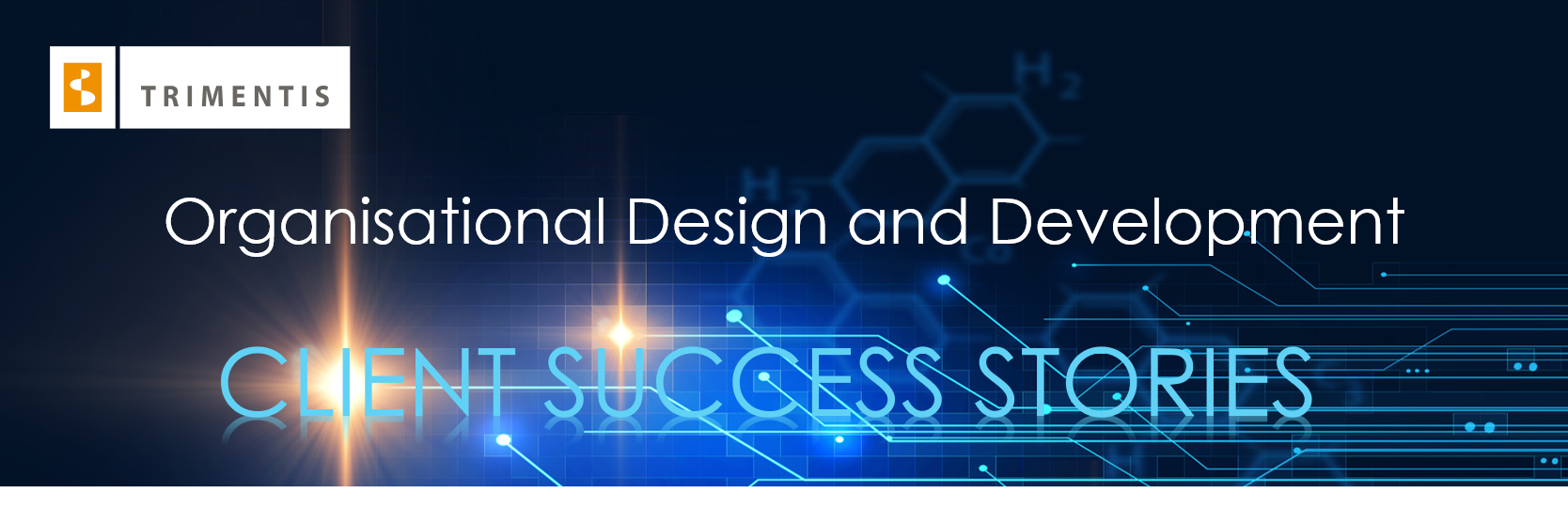
The team reorganised based on the development of their core team processes, roles and responsibilities, and the manager embarked on a personal development programme to develop her effectiveness in terms of systems thinking and influencing skills.
Priorities
Our client was a manager reporting to a Head of Department of a customer service operation within an International business. Her team’s role was to routinely and systematically generate customer data from a wide variety of sources and lead the development of changes in the operation based on an analysis of this data.
The Team were seen as not performing fully effectively and were seeking to further develop their skills and impact through training to improve customer service operations and ultimately customer satisfaction. However, the manager had decided to change the priority from team wide training and development to a focus on defining the optimum team organisation. This was required to deliver an increasing range of services into a growing business, and to use this to justify an increase in headcount that she believed was the necessary solution for progress.
This approach was not automatically accepted by her Divisional managers who requested further analysis and debate. This was an example of a commonly encountered situation where a manager fails to get approval of their plan regardless of its quality because it apparently doesn’t fit with the objectives of senior management. Likely to be a two-way failure to communicate!
The overall priorities were to complete an assessment of the situation and to assist the manager to develop her personal and team’s effectiveness. TRIMENTIS were invited to lead the analysis of the situation, report and follow through to address the issues found.
Approach
TRIMENTIS lead an analysis of the situation completing reviews with all key internal stakeholders including the team manager, team members, her manager, the Divisional Director and internal customers of the team. The Five Questions of Performance Leadership was used as the analytic and evidence based method of enquiry to systematically reveal, test and clarify overall performance and the underlying issues.
The approach takes users through a logical series of questions that require specific answers supported by sound examples of evidence. In this way the quality of information, debate and decision making over a wide range of strategic, operational and performance issues are greatly enhanced.
All too often managers set about reorganising their team as a first step to improving performance only to find that once the disruption caused has calmed down, their underlying effectiveness has not improved significantly. A decision to reorganise should follow an analysis of the team’s core work processes, roles, performance data and customer feedback.
Results
A comprehensive set of evidence based recommendations was developed, achieving consensus and accepted by the manager, her senior managers and her team enabling the organisation to commit to a shared programme of radical performance improvement.
The team implemented the development of an overall strategy underpinned by a customer experience model based on customer values in order to move their primary activities from reactive data handling to a leadership role becoming the drivers, champions and guardians of the customer experience.
A more formal approach to the management and leadership of the team was established based on clarified team goals, objectives and indicators of success used in ongoing performance review meetings.
The team reorganised based on the development of their core team processes, roles and responsibilities. A high-level core team process map, roles and an outline organisational design were delivered to the team as a starting point in their own ongoing development. Additional staff were not recruited at the time.
Results
The team moved away from data manipulation towards more knowledge based value adding activities, creating time to do this by developing automation and self-service, reviewing and reducing their current range of reports, challenging users to demonstrate their use of reports and driving a reduction in demand for ad hoc reports. They started to review the use of standard reporting packages, examples of which were already in use in Marketing and Sales in other parts of the organisation.
They set out to build more statistical methods and disciplines, working to educate and change behaviours (culture) outside the team to improve the handling of concepts such as variation, confidence limits and ‘process control’, so reducing the reactive demand on the team for ad hoc services.
The manager chose to embark on a personal development programme, recognising that some of the issues her team had faced might have been addressed more effectively if she had been stronger in terms of systems thinking and influencing skills.
Testimonial
I would like to thank you for helping during what has been a very stressful time. Having returned from short term leave as thoughtfully advised by yourselves, this manager is now back on top of the job and making good progress.

Find out more about how we turn Priorities into Results …
Client Success Stories

Learn how we have worked with clients to achieve significant results through our client success stories. Each client success story illustrates how we have helped define client priorities, what approach the team took and the results the client achieved … turning priorities into results.
Start using Performance Leadership

To start using performance leadership across your organisation today get in touch with us through our Contact page. TRIMENTIS has been working with clients for nearly two decades across a range of sectors and we have supported over £9 billion worth of major infrastructure projects.

